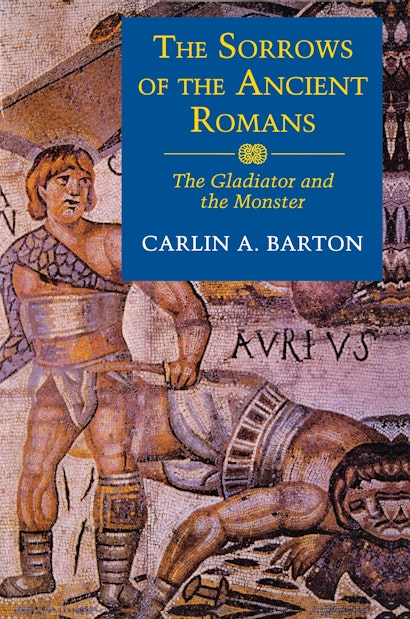The Sorrows of the Ancient Romans: The Gladiator and the Monster


Paperback
- Price:
- $55.00/£45.00
- ISBN:
- Published:
- Dec 18, 1995
- Copyright:
- 1993
- Pages:
- 224
- Size:
- 7.75 x 10 in.
- 2 halftones
- Main_subject:
- Ancient World
ebook
This inquiry into the collective psychology of the ancient Romans speaks not about military conquest, sober law, and practical politics, but about extremes of despair, desire, and envy. Carlin Barton makes us uncomfortably familiar with a society struggling at or beyond the limits of human endurance. To probe the tensions of the Roman world in the period from the first century b.c.e. through the first two centuries c.e., Barton picks two images: the gladiator and the “monster.”